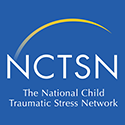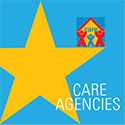
Trauma-informed residential settings require two trauma-informed setting-level systems: a Crisis Prevention and Management System and a Practice Model.
A Practice Model provides a framework for practice, based on a valid theory of how children change and develop, that motivates both children and staff to adhere to routines, structures, and processes minimizing the potential for interpersonal conflict. Without a clear framework for providing care, there are lost opportunities throughout the day to help children achieve developmental and treatment goals. The framework also provides consistency in message and approach with the children and congruency throughout the organization.
A trauma informed crisis prevention and management system identifies the roles and tasks as well as desired practice at all levels of the organization that, when implemented, create a consistent approach to crisis prevention and management within a nurturing, safe and predictable environment. The system should help organizations to prevent crises, de-escalate potential crises, manage acute behavior, reduce potential and actual injury to children and staff, teach children adaptive coping skills, and develop a learning organization.
TCI helps residential child care organizations to:
- Create a trauma-sensitive environment where children and adults are safe and feel safe
- Pro-actively prevent and/or de-escalate potential crisis situations with children
- Manage a crisis situation in a therapeutic manner, and, if necessary, intervene physically in a manner that reduces the risk of harm to children and staff
- Process the crisis event with children to help improve their coping strategies
- Effectively deliver in-house TCI
CARE: an evidence-based, trauma-informed program for organizations that provide care for children in residential settings
- The CARE program, which is built on six principles that form the foundation for creating conditions for change in residential care, is a trauma-informed, evidence-based program that residential organizations may adopt as their Practice Model.
- These core principles: developmentally focused, family involved, relationship based, competence centered, trauma informed, and ecologically oriented, have a strong research and/or theoretical relationship to positive child outcomes, and can support a wide variety of individual-level treatment models.
- The implementation of these principles promotes congruency in the best interests of children throughout all levels of a residential care organization.












